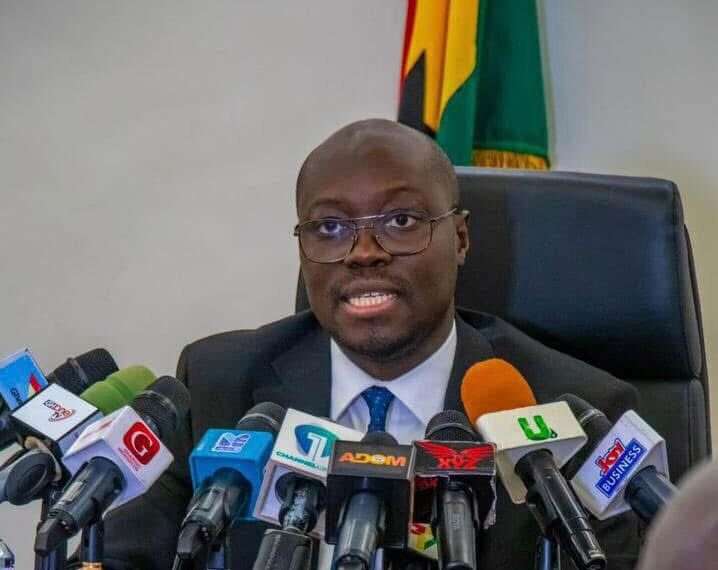The Minister for Finance, Dr. Cassiel Ato Forson, has sounded an alarm over Ghana’s energy sector, describing it as a “ticking time bomb” that is placing an unsustainable financial burden on the country.
Speaking at the opening session of the National Economic Dialogue on Monday, March 3, Dr. Forson revealed that inefficiencies in the energy sector are costing Ghana approximately 2% of its Gross Domestic Product (GDP) annually, a situation that could escalate if urgent measures are not taken.
Dr. Forson, while outlining the objectives of the Energy Sector Recovery Programme (ESRP), expressed his frustration over the failure to meet the targets of the program.
According to the Finance Minister, the recovery plan was significantly off track, largely due to deep-rooted challenges within the sector. “Fixing the sectors requires radical measures,” he stated.
“High generational costs due to lack of competition and limited renewable capacity in the energy mix is a problem.
“High distribution and collection losses at ECG collection losses at ECG is also a problem.”
Dr. Cassiel Ato Forson, Minister for Finance
The Finance Minister detailed a grim financial outlook for Ghana’s energy sector, stating that the cumulative financial shortfall for the sector is projected to exceed $9 billion by 2026 if no interventions are made.
According to him, the government had already transferred a staggering $2.1 billion to sustain the sector in 2023 and 2024, yet the shortfall for 2024 alone remains at $2.2 billion.
Additionally, the Electricity Company of Ghana’s (ECG) unpaid legacy arrears at the end of 2022 stood at $1.3 billion, exacerbating the sector’s financial distress.
Dr. Forson emphasized that business-as-usual approaches will no longer be viable and called for immediate and radical interventions to prevent a complete financial collapse of the sector.
ECG’s inefficiencies in revenue collection are further compounding the sector’s challenges. According to Dr. Forson, only 62% of the total electricity purchased by ECG is successfully collected as revenue.
Of this amount, 65% is used to pay for power supplied through the Cash Waterfall Mechanism, while 35% is used to cover ECG’s own operational expenses.
The high level of distribution and collection losses has significantly weakened the financial sustainability of the power sector.
Call for Urgent Action

Given the dire financial situation, Dr. Forson emphasized the need for swift and decisive action to address the sector’s growing debt burden.
“The current financial strain on ECG is unsustainable, and we cannot continue to use tariffs as a way to reward ECG for unpaid legacy arrears. This simply means we have to take action, and the action must be now.”
Dr. Cassiel Ato Forson, Minister for Finance
The Finance Minister emphasized the importance of introducing market reforms to encourage competition, which could drive down costs and improve the overall efficiency of energy generation.
He also called for greater investment in renewable energy, noting that the country’s energy mix still remains largely dependent on thermal power, which is costly and increasingly unsustainable.
As global energy trends continue to shift towards cleaner and renewable sources, Ghana risks being left behind unless it accelerates the transition to more sustainable energy generation.
Dr. Forson called for a comprehensive review of the existing energy policies and the development of new, more effective strategies. “We cannot continue on this path,” he said, stressing that there was a need for a holistic and integrated approach to solving the energy sector’s financial crisis.
Dr. Cassiel Ato Forson’s revelations at the National Economic Dialogue serve as a wake-up call for policymakers and stakeholders in Ghana’s energy sector.
The urgency of the situation demands immediate policy interventions to prevent a full-blown crisis.
While the challenges are significant, with the right reforms and investment strategies, Ghana has an opportunity to stabilize and strengthen its energy sector for long-term sustainability. The time for action, as emphasized by the Finance Minister, is now.
READ ALSO: National Economic Dialogue 2025: Resetting Ghana’s Economy



















